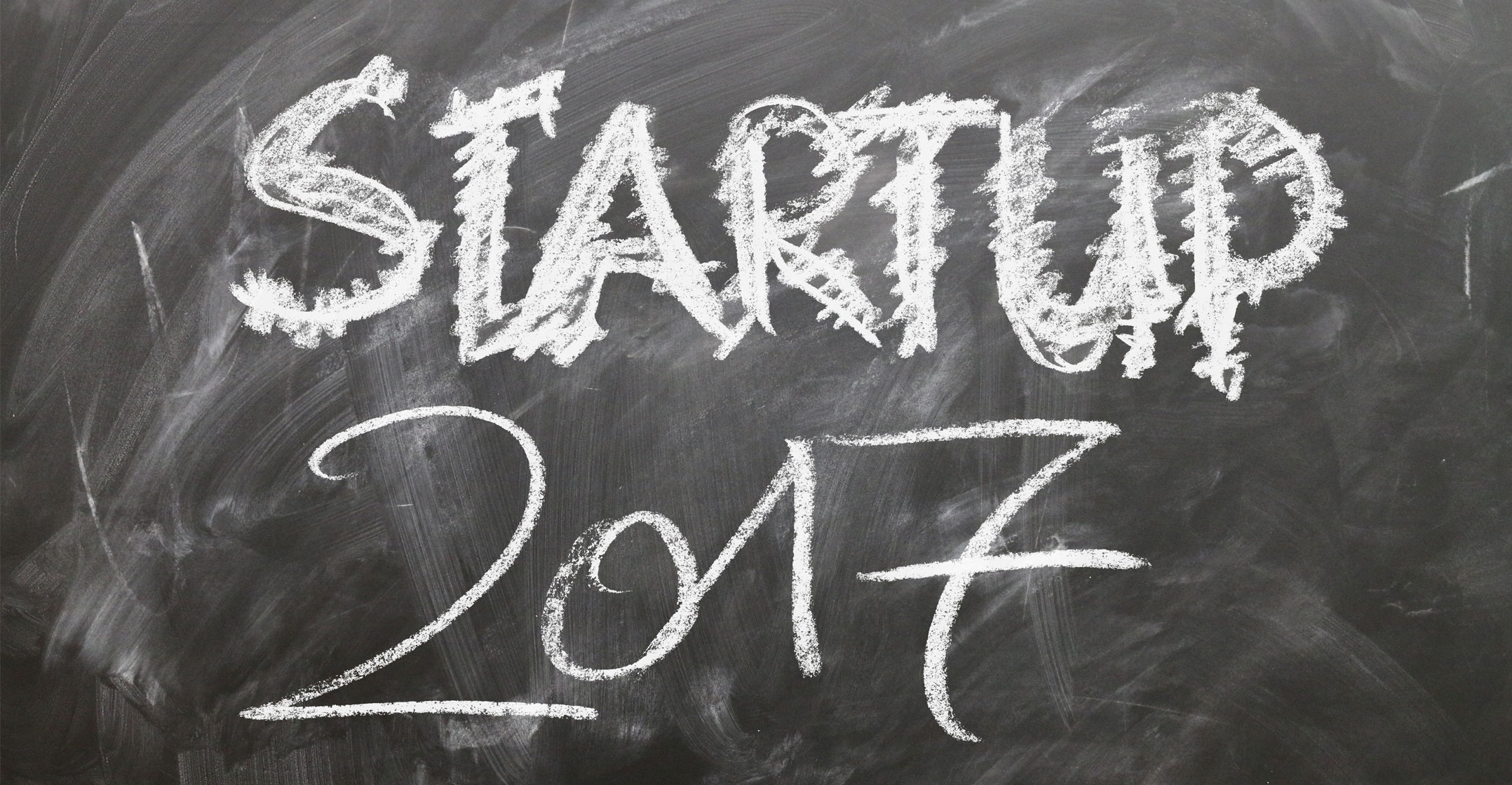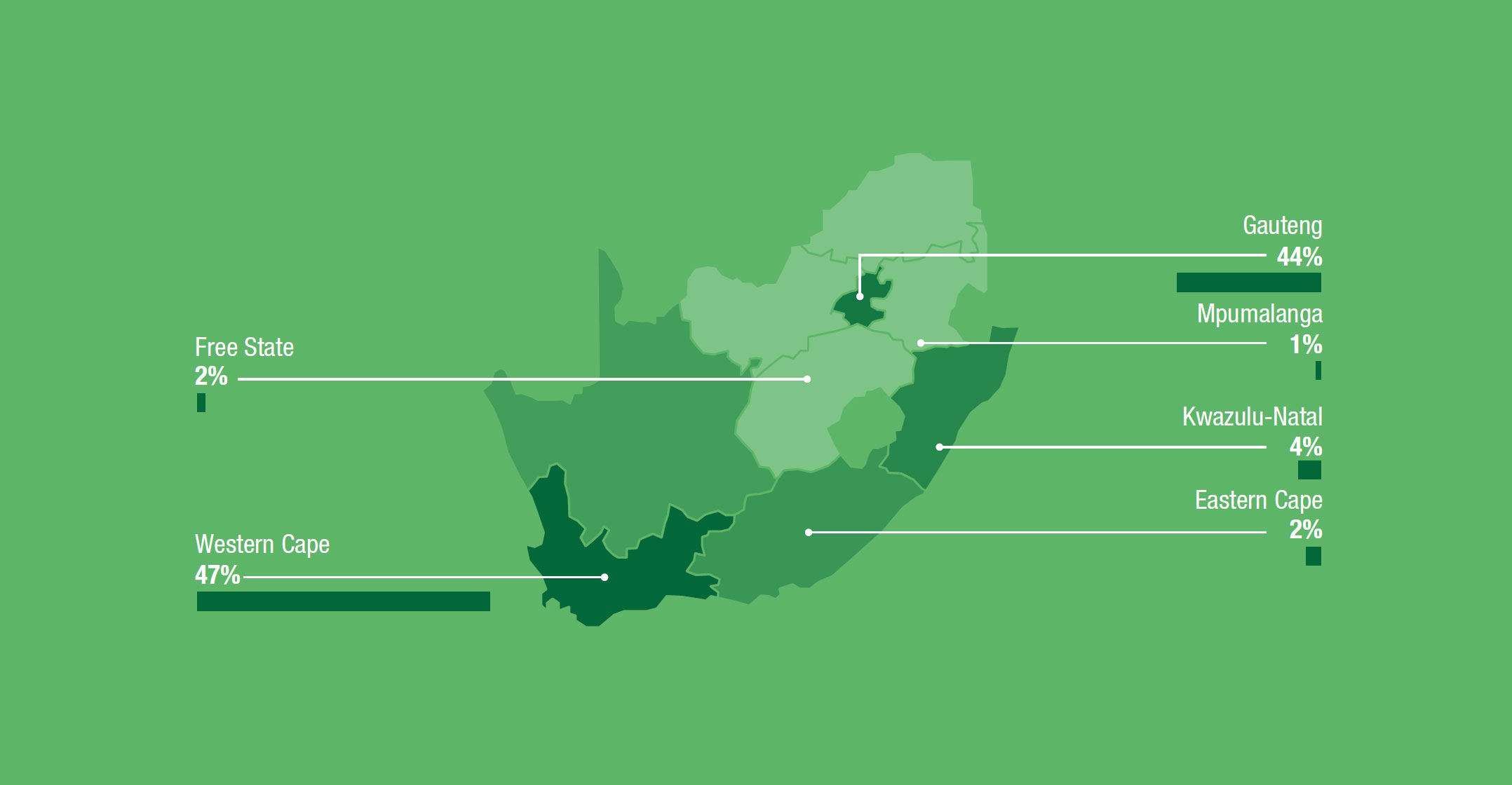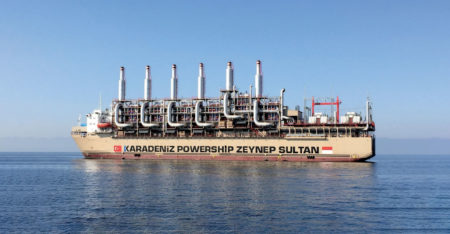
Gauteng is challenging Cape Town as the epicentre of the technology start-up scene in South Africa, according to new research. There has also been a jump in the number of black entrepreneurs, though they are not yet as successful as their white counterparts.
Ventureburn’s Tech Startup Survey for 2017 has found that although the Western Cape is still the most popular region in South Africa in which to run a start-up, the province is fast losing ground to Gauteng.
Forty-four percent of 260 founders surveyed as part of this year’s Ventureburn study said they operated in Gauteng, behind the Western Cape’s 47%. That’s a sharp rise for Gauteng, where two years ago it was less than 30% versus Cape Town’s almost 60%.
There has also been a surge in black entrepreneurship, with 50% of founders counting themselves as black African, “coloured” or Indian/Asian, up from 26% in 2015. Whites made up 44% of the total. However, the tech start-up ecosystem remains male dominated at 78%, up from 68% two years ago.
Just 4% of black tech start-ups turn a profit, versus 16% of their white counterparts, the study found. The majority of black-led start-ups (53%) list Gauteng as their base, with 42% saying the Western Cape is their home.
Other key findings of the research are: more than a quarter of start-ups plan to raise angel or VC funding, but only 8% receive such funding; almost a third say they pay market-related salaries, but pay is the top reason for employees leaving; and successful start-up founders are most likely to be white males from the Western Cape.
Worryingly, only 10% of the tech start-ups surveyed are turning a profit, down from 17% in in 2015.
Struggling
Black tech start-ups, in particular, are struggling. “While 16% of start-ups founded by white entrepreneurs are turning a profit, a mere 4% of black-owned tech start-ups are doing the same,” the researchers found.
“Most worrying is that 61% of black start-ups have yet to generate an income because they are still working on their concept or are still in the seed stage. This compares to 30% of white start-ups.”
Only 9% of black-owned start-ups (and 4% of black African start-ups) generate a revenue of above R1m, compared to 29% of their white counterparts.

In all, white start-ups accounted for 59% of all start-ups that reported having tapped angel funding, while 24% of white start-ups reported having raised R1m or more to fund their businesses, compared to just 8% of black start-ups (and 2.5% of black African founders).
“It suggests better-resourced white start-up founders, who often have access to more capital, skills and experience, and better networks, are able to outperform black start-ups.”
White start-up founders are significantly older than black founders. Over a quarter (26%) of white founders are 40-plus, compared to just 13% of black founders.
Almost three quarters of black founders are 35 or younger, compared to 62% of white founders located in this age band.
“This raises various questions as to what is driving more middle-aged white founders to start up their own business and whether employment equity is behind this or not,” the researchers said.
“In addition, it might also explain why so few black start-ups are making a profit compared to white start-ups. Older founders are usually more experienced, better networked and have more capital than younger entrepreneurs.”
Some 27% of all South African tech start-up founders believe they will grow their businesses by securing venture capital or funding from angel investors — yet only about 8% report ever having been able to secure such funding. Just 9% of those looking for angel investing and just 20% seeking VC funding have firms that are growing or turning a profit.
The majority of South African tech start-ups use their own cash to fund the business (40%), followed by loans and grants from friends and family (23%).
When they are able to get funding, most start-ups receive very little. In all, 42% of start-ups reported getting less than R50 000. Only 16% received R1m or more (the value at which angel investors and VC funding usually starts). The remainder (42%) received between R50 000 and R1m. — (c) 2017 NewsCentral Media




